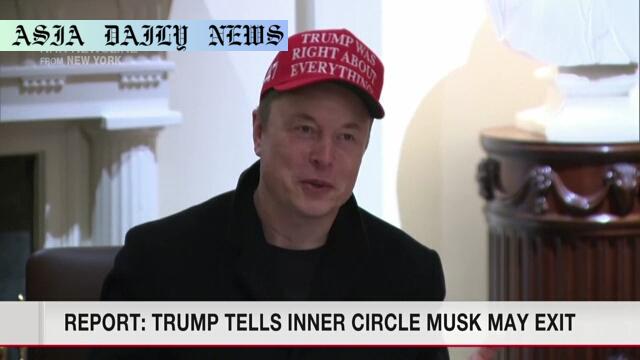Musk leads DOGE, aiming to cut federal spending, but reports suggest Trump and Musk agree it’s time for him to step back.
Musk heads the Department of Government Efficiency (DOGE).
Both Trump and Musk have agreed it’s time for him to step back.
Tesla sales saw a 13% drop in Q1 amidst political backlash.
Critics label Musk unpredictable and a political liability.

Understanding Musk’s Position in the Trump Administration
Elon Musk, famously known for revolutionizing the automotive and space industries, has led the Department of Government Efficiency (DOGE) under President Donald Trump’s administration. DOGE, initially set up to reduce federal worker headcount and tighten spending, reflects Musk’s results-driven, entrepreneurial mindset. While Musk’s efforts have garnered approval from Trump and certain advocates, his techniques of budget cuts and policies often spark intense debates, chiefly due to the ripple effects on federal employees and long-term administrative stability.
Despite his credentials and achievements outside of politics, Musk’s entry into government roles introduced a wave of skepticism. His outspoken nature and unconventional strategies have made him a divisive figure across the political spectrum. In recent discussions with his close advisors, Trump reportedly acknowledged Musk’s contributions but agreed on the necessity for a role realignment, paving the path forward for Musk to pivot towards his entrepreneurial priorities rather than direct politics.
The Impact of Political Engagement on Tesla’s Performance
Musk’s association with political agendas and the merger of his public persona with governmental pursuits have raised questions, chiefly because it influenced Tesla’s public perception. Reports cite that Tesla witnessed a 13% sales dip during the first quarter of this year, which is attributed largely to backlash stemming from Musk’s entanglement in right-wing causes. This dynamic links his political involvement to consumer responses, signaling cracks in Tesla’s brand image with eco-conscious and centrist demographics who oppose his alignment with divisive figures or ideologies.
Intriguingly, despite the Politico report, Tesla’s stocks on Wall Street saw a rebound on Wednesday. This reinforces the perception that while Musk’s strategies may polarize audiences, his audacity and pivot decisions still resonate strongly with investors betting on his future endeavors.
Future Prospects as Musk Realigns Focus
The decision for Musk to step aside stems beyond just performance statistics and perceptions; it underscores how challenging it is for non-politicians to successfully navigate intense political systems. Observers internal and external to the administration have labeled Musk ‘unpredictable,’ interpreting this nature as both an asset in private innovation and a liability in structured bureaucracies. Musk’s anticipated return to business allows him room to recalibrate amid pressing challenges like reviving Tesla sales trajectories and SpaceX commitments.
Moreover, Trump’s continued support highlights their shared pragmatism. Conclusively, this transition provides Musk with an opportunity to widen distances between politics and his more celebrated ventures, safeguarding Tesla’s brand equity while laying strategic groundwork for forthcoming projects unaffected by governmental red tape or partisan influences.
Commentary
Musk’s Transition: A Case for Strategic Realignment
Elon Musk’s apparent exit from his governmental role under the Trump administration reflects not only a personal recalibration but also a broader commentary on the challenges faced by entrepreneurs in traditional political frameworks. As someone known for pushing boundaries and tackling inefficiencies with direct and often radical approaches, Musk’s leadership of the Department of Government Efficiency (DOGE) unsurprisingly became a lightning rod for scrutiny. His innovative ethos collided with the slower, more methodical nature of public administration, leading to both accomplishments and criticisms during his tenure.
The Role of Public Perception in Decision-Making
Public backlash against Musk’s political associations, particularly his alignment with right-wing causes, has undoubtedly had an impact on Tesla’s consumer trust. A 13% slump in Tesla sales is not just a financial metric—it is a barometer of how closely stakeholder decisions are influenced by personal brand optics. This serves as a cautionary tale for business leaders who believe they can seamlessly blend corporate leadership with political activism without repercussions.
What This Means for the Future
Stepping back from a formal government position lets Musk preserve his innovator identity while unburdening him from the pressures and missteps often associated with public office. This pivot allows him to focus on what he does best—delivering technological advancements and challenging established norms in technology, space, and energy. It’s now critical for Musk to reestablish a clearer boundary between his entrepreneurial vision and the political controversies he inadvertently became entangled in.


